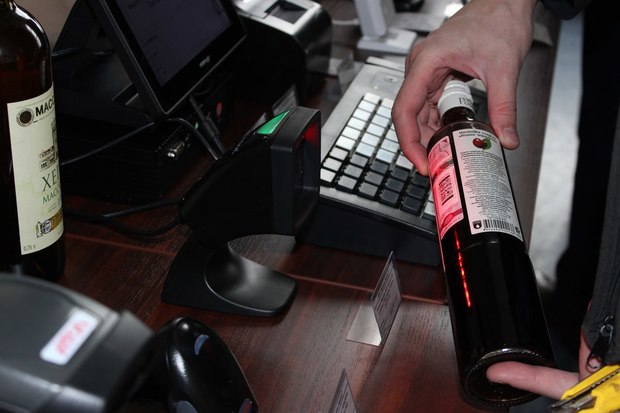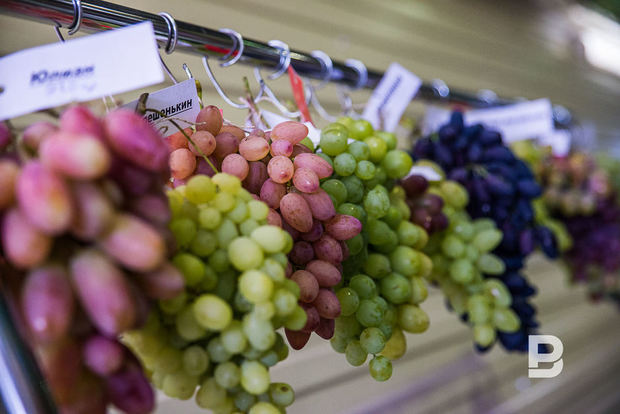‘Excise tax increase — a stab by the Ministry of Finance in the back of the wine industry’
According to experts, the proposal of the Ministry of Anton Siluanov is pointless from all perspectives: economic, political and social
The RF Ministry of Finance has proposed to raise excise taxes on wine and cigarettes. According to Kommersant newspaper, this proposal can be found in the draft of the basic measures of tax policy in 2017-2019. If this initiative is adopted by the government, the excise tax on wine will increase from 9 to 18 rubles per liter for imported wines and from 5 to 10 rubles for Russian ones. This does not apply to sparkling wines, champagnes, fruit wines and wine beverages. Besides, the Finance Ministry has proposed to raise the excise tax on cigarettes from 1,25 thousand rubles per thousand pieces to 1,56 thousand rubles in 2017, and also to equalize the excise tax on alcoholic and non-alcoholic beer. Vadim Drobiz, the director of the Center of Researches of Federal and Regional Alcohol Markets (TSIFFRA) in an interview with Realnoe Vremya shared his opinion about the initiatives of the Ministry and told in what they may result for the market.
'Alcohol budget'
What do you think about the initiative of the Ministry of Finance of the Russian Federation to increase the excise tax on wine twofold?
Interestingly, two things coincided. First, the Ministry of Economic Development and Ministry of Industry and Trade raised the question of reducing the rates of excise duty and, accordingly, reducing the retail price for vodka almost two times. Of course, the Ministry of Finance resists, because in order vodka on the shelf cost 100 rubles, it is necessary to reduce the rate of the excise tax three times. Even if it will legalise another 20% of the market, the excise collection will be reduced at least 2.5 times. Nobody will agree for this amid the crisis, of course.
Here are some of the characterising the situation numbers: last year, 130 billion rubles of excise taxes were collected from hard liquor. This year EGAIS (the unified state automated information system — editor's note) has been introduced, the system has legalised the market and due to the system, the production has been increased by 15%, the collection of excise taxes — by 20%. Due to this system, this year about 30 billion rubles more will be collected from hard liquor, next year — by another 10 billion rubles.

This year EGAIS has been introduced, the system has legalized the market and due to the system, the production has been increased by 15%, the collection of excise taxes — by 20%. Photo: retauto.ru
'The excise tax should be removed'
As for the wine products. This is, of course, a stab in the back of the industry. The government for so many years has been telling about and adopted some promising solutions for the winemakers, but we are totally import-dependent country. And if to translate to wine products all that we drank — wine, sparkling wine, wine drinks, cognac, brandy, — we drank about 1.5 billion litres of wine materials. But we produced together with Crimea — 300 million litres. That is, we provide ourselves at only 20%.
Therefore, we need to plant vineyards, to change the structure of consumption. By the way, today we have vineyards three times less than we had in the Soviet times. Today we drink 3.5 litres of wine per capita – it is 5 times less than in the Soviet era. This is one of the lowest in Europe levels. We are absolutely sick about this. We have 60 litres of beer, 15 litres of hard liquid and only 3.5 litres of wine. Even the Finns from 1990 to 2005 increased wine consumption from 4 to 17 litres.
We had these tasks, the government encouraged and promised to help. And, suddenly — the rate increase. It is senseless from all points of view: economic, political, social. From the economic one, at least for the simple reason that last year the wine industry gave the budget 11.3 billion rubles in the form of excise taxes. 8.5 billion rubles — Russian component, the rest — import. If you look at how the collection of excise duties on the Russian products will rise, which they want to raise, we will get a maximum of 2.5 billion rubles. The money will be lost, given that 30 billion rubles this year will be given from vodka and liquor. This is a stab by the Ministry of Finance in the back of the wine industry.

'Today we have vineyards three times less than it was in Soviet times. Today we drink 3.5 litres of wine per capita – it is 5 times less than in the Soviet era. This is one of the lowest in Europe levels .' Photo: Maksim Platonov
You know, this industry is very fragile because long money plays here a role — you plant grapes and the first money you will receive in the best case in the seventh year. Grapes grow 5 years, then you create a product, brand, and begin to sell, spend a lot of money to hit retail. The retail trade has shrunk by 25% over the last 5 years – the government has cut the number of legitimate retail outlets. In 7 years you will slowly redeem the money invested. Therefore, we need to do everything carefully and accurately. The excise tax should be removed, not increased — it would be right.
'They are trying to collect anywhere they can'
How do you think it will concern all wines or only a segment?
As I understand it, all wines, regardless of their geographical name. You see, if they raised the rate only for wine made from imported grapes — I would have understood this because it's kind of supporting Russian manufacturers. But this measure would have given us only 700 million rubles — it is ridiculous. Therefore, there is no economic sense — vodka will compensate the money. From a political point of view, it is, of course, a stab in the back. Now the Ministry of Agriculture is preparing a large program for the planting of vineyards by 2025. Well, do it yourselves, gentlemen officials, because for business it is easier to bring wine from abroad, to bottle and sell, rather than to wait 7 years until it begins to redeem.
The purpose of this initiative is simple: the state does not have money, the economy is in a mess, a full collapse of everything. They are trying to collect anywhere they can. Everyone knows that the last thing, from which a grown man in his life refuses — alcohol. He will live without meat, bread, milk, but without alcohol he will not live, strange as it may seem. The life has shown this. Therefore, in the West alcohol is 10 times cheaper than income.

'The purpose of this initiative is simple: the state does not have money, the economy is in a mess, a full collapse of everything. They are trying to collect anywhere they can. Everyone knows that the last thing, from which a grown man in his life refuses — alcohol.' Photo: 711.ru
Will the rise in price for wine lead to a redistribution of demand in favor of cheaper drinks?
The consumption [of low-alcoholic beverages – editor's note] is already at a low level. The economic crisis is to blame — amid a crisis, people always drink less wine, low-alcohol products and more alcoholic beverages and surrogate. The second crisis is demographic. Since 2008, we have less and less people in the group from 18 to 55 years. These people mostly are consumers of all decent alcohol products. There is a collapse in the brewing industry. It began in 2008, and a beer demographic crisis will end in 2020. A crisis of wine began in 2012 because the girls start to switch to wine at the age of 22. It will end in 2024. The government doesn't care about the growth of wine consumption, and external factors reduce it.